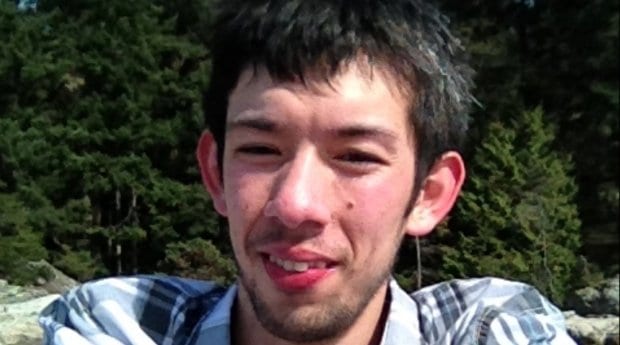Seventy percent of queer youth in the Lower Mainland report that they have not experienced homophobia while playing sports, says Trevor Ritchie, author of Rainbow Lockers, a new book about young queer athletes.
Ritchie’s study appears to counter the findings of Out on the Fields, the first international survey to assess the experiences of lesbian, gay, bisexual and straight athletes.
Released in May, Out on the Fields concluded that 81 percent of Canadian athletes witnessed or experienced homophobia. The study states that almost 90 percent of Canadian youth hide their sexuality from their teammates.
“At the youth level we clearly have a lot of work to do,” says Sandra Kirby, a former Olympian and researcher for Out on the Fields. “Vancouver I know has some very progressive education programs for addressing homophobia in schools and so on, so maybe [Ritchie] got his results from a strong educational area.”
Ritchie, a student at the University of British Columbia, says he grew up playing sports but was curious about the lack of other queer athletes. “I wanted to do this study and see why all of my queer friends now didn’t play sports,” he says.
Kirby says she spoke with Ritchie early in his research, and that the difference in their sample sizes and demographic of participants may have contributed to the opposing results. Out on the Fields included 1123 Canadian participants; Rainbow Lockers received 110 surveys from youth aged 12 to 26.
Ritchie says that urban cities have many queer sports leagues and maintain efforts to ensure queer people feel welcome. While he says 80 percent of his participants anticipated experiencing homophobia, this wasn’t the case once they actually started playing sports.
“It’s so hard to get over the mental misconception that we all have,” he says. “I think for some people it’s a self-esteem issue. They’re afraid that if they go and try, they won’t be good and people will laugh at them . . . They don’t want to be known as the gay player who isn’t good at their sport.”
Ritchie says that he experienced some discrimination as an athlete, but that the jokes stopped once his teammates found out about his sexuality.
“When I was playing baseball, there was still the odd comment, ‘Oh look at the fag runner,’ or something like that,” he says. “But it wasn’t actual homophobia . . . because once I came out, it stopped.”
Ritchie states in the study that the lack of queer athletes in sports may perpetuate homophobic stereotypes.
Non-profit organizations like You Can Play, and the growing number of professional athletes who come out or are advocating for gay athletes, have contributed to a more accepting sports environment, Ritchie says. He believes “no one bats an eye” towards openly gay players at local rinks or soccer fields in the Vancouver area.
Ritchie acknowledges that there is still work to be done to make sports more inclusive. He says communities need to speak with their local sports leagues to make sure queer issues are being addressed, citing trans-inclusive locker rooms as an example.
Ritchie’s study offers “a glimmer of hope amongst a particular group that he researched,” Kirby says. “I don’t know who they are, but those are his results so that suggests there’s a positive enclave somewhere for some youth in some sport.”
Read our coverage of the Out on the Fields study here, and some Canadian Olympians’ reaction to the study here.
Rainbow Lockers is available for sale on Amazon here.


 Why you can trust Xtra
Why you can trust Xtra


